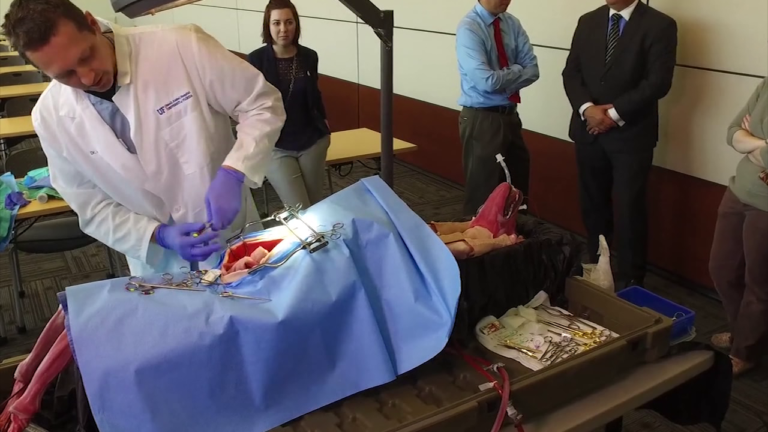New synthetic canine could potentially save thousands of animals

Syndaver Labs has developed a synthetic canine for veterinary students to practice on. Typically, students perform surgeries and tests on shelter dogs. Those dogs are euthanized afterward. The company hopes the development can end that practice.
47ABC caught up with Dr. Robert Joyner, the Deean of Salisbury University’s Science and Technology department on Friday. His students practice on synthetic humans at the Richard A. Henson Medical Simulation Center, and have been for about 4 years. He says synthetic testing started in the aviation industry, which then lead to nuclear industry and the medical field, and that moving on to veterinary practice is the next logical step. “Veterinary medicine is following that path. The idea that you can use mechanized or high fidelity animals and the education of veterinarians is a no brainer.” Joyner tells 47ABC.
The technology current in the Henson Medical simulation center allows students to work on the “patients” completely independently. The synthetic mannequins can have their heart rate, blood pressure, temperature, etc. controlled from another room by the administrators. There are three mannequins in the center, one adult male, one male child, and one pregnant woman as well as a baby. These scenarios allow for real life situations to play out, with each move of the student affecting the physiology of the mannequin.
To learn more about the simulation center you can find information here: http://www.salisbury.edu/henson/simcenter/
Although Salisbury University does not have a veterinary program, the University does have a veterinary medical school preparation curriculum, in which those students would work on the synthetic cadavers like the canine created in Florida.
A go fun me page has been started to get the canine cadaver project off the ground. That link can be found here:https://www.indiegogo.com/projects/syndaver-synthetic-canine-a-veterinary-revolution#/


